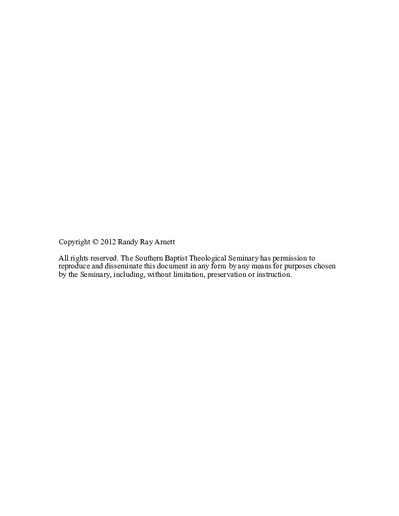| dc.description.abstract | Over the past century, Pentecostalism has risen from obscurity to ascendancy in global Christianity. This ascendancy appears prominently in West Africa where Neo-Pentecostalism has transformed the religious landscape. Very few studies have examined the effects of the movement in the Francophone countries of Côte d'Ivoire, Burkina Faso, Benin, and Togo.
Over the past two decades, Baptists in these countries have undergone a transformation. This transformation differs fundamentally from the charismatization of other mainline churches. Many denominations created space within the churches for Neo-Pentecostalism while maintaining their historical mission and foundations. In contrast, Baptists did not create space for Neo-Pentecostalism, but embraced and adopted the Neo-Pentecostal ethos; Baptists pentecostalized.
This qualitative study examines this pentecostalization phenomenon among Baptists with particular attention on Togo. Most of the interviews were conducted in 2011. In addition, I draw on twenty-five years of experience with a Baptist missions agency in Francophone West Africa.
Following an explanation of the research methodology and the historical context, I survey Pentecostal identity in Africa and identify five distinctive emphases of West African Pentecostalism--ethos, doctrine, worship, charismatic manifestations, and organization.
The first core section treats the nature of pentecostalization. I identify five typical responses by churches; the characteristic practices of pentecostalized Baptists; three privileged traits--experience, charismatic manifestations, and warfare prayer; the influences on pentecostalization; and five effects of pentecostalization in terms of emphases, message, identity, polity, and church planting model.
The second core section treats the contextual factors during three eras. In the first era, Baptists were exposed to Neo-Pentecostalism because of social and religious changes. In the second era, Neo-Pentecostalism gained a foothold because Baptists were ill-prepared for the movement. In the third era, Baptists pentecostalized because of shifting priorities during a critical transition.
The third core section treats the appeal of Neo-Pentecostalism for Baptists. Neo-Pentecostalism secured deep roots among Baptists because it engages the African worldview, contemporizes well-being, reframes problem-solving, and promotes religious fervency.
The final section of the dissertation summarizes the findings, suggests six implications of the analysis, proposes a response to the phenomenon, and offers avenues for future research. | en_US |

